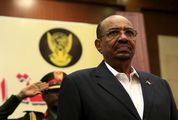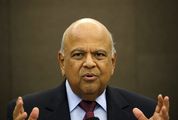NEW YORK — There’s no human interaction the Internet can’t make even more alienating, and that goes double for finding a mate.
But perhaps one way to make online dating less fraught is to treat it with the kind of clinical detachment that allows humans to becalm their misleading emotions and succeed at related enterprises, from stock trading to hiring the best employees.
With Valentine’s Day near, it’s time to bring on the economists.
"Dating markets are a good example of matching markets," says Alvin Roth, who won a Nobel Prize in economics in 2012 for studying such markets.
"To work well, they have to overcome all the problems markets have to overcome."
Mr Roth has designed markets for matching patients to organ donors, doctors to hospitals, and students to schools.
And while he has yet to design an online dating site, he has no shortage of opinions about how to make them more effective.
The first thing an online dating site has to do is create a market that is "thick," says Mr Roth.
That’s economist-ese for a market that has a lot of people seeking to link up.
But getting lots of people to sign up for a dating site is the easy part.
Online at least, "there’s always a thick market for people who are looking for someone else," says Paul Oyer, a colleague of Mr Roth’s at Stanford University who wrote a widely cited book, "Everything I Ever Needed to Know about Economics I Learned from Online Dating."
The popularity of dating apps leads to what economists call "congestion," says Mr Roth, which is how economists describe bottlenecks in a system of exchange.
To take but one example, congestion is what happens when men spam every woman they match with on Tinder, something women on the app regularly complain about.
This behaviour is perfectly rational, says Mr Roth, given the structure of Tinder, which lets you match with people endlessly.
Solutions to this kind of message congestion can be found in the concept of "signalling," which is the study of ways in which actors in any market can be forced to send expensive and therefore honest messages about themselves or their intent.
One recent experiment in improving online dating sites through signalling mechanisms, conducted by economists Soohyung Lee and Muriel Niederle, gave members of a Korean dating site a limited number of virtual roses, meant to indicate special interest in a person, to include with their messages to potential matches.
The result was that people were more likely to respond to those who sent them a rose, because they knew their interest was sincere, or at least went beyond a split-second impulse to see if they would respond.
A long list of online dating services have implemented something similar.
Tinder offers each user one "super like" a day, letting the user indicate they are especially interested in someone.
And Hinge, a dating app that connects people to others who are two or three degrees removed from them on their Facebook friend graph, only allows 10 matches a day.
Another problem with online dating is what Mr Oyer calls "statistical discrimination" — in other words, stereotypes.
When reading online profiles, we all infer things about others that might or might not be true.
And sometimes it’s the very means by which we communicate that can convey that implicit information.
An effort to tackle this problem comes from Whitney Wolfe, CEO and founder of dating app Bumble, who is also a co-founder of Tinder.
Bumble lets women initiate contact with men, but not the other way around.
"If the woman makes the first move on a lot of these dating apps, the perception is not accurate," Ms Wolfe says.
"Guys will think, ‘Oh, she’s making the first move, she must be crazy." Bumble, she argues, lets its users avoid this stereotype by making this behaviour the only option.
One thing online dating cannot solve, Mr Roth says, is the time-consuming process of figuring out whether you like someone once you’ve matched.
Swiping right might take but a moment, but going out to dinner with someone is a kind of market congestion that’s simply unavoidable.
One solution could be good old algorithms: If Netflix can figure out what you might like to watch next, why can’t dating apps become better at figuring out whom you might like to meet? Not long ago, two researchers used machine learning to create a system that can figure out whether you might like someone just by looking at their picture — though it isn’t very good yet.
Whatever online dating site a person is using, Mr Oyer suggests the key to avoiding "romantic unemployment" is to use "cost-benefit analysis".
Which is a delicate way of emphasising that sometimes, the key to finding a mate is settling.
Indeed, a recent study of 1,000 couples who met on the dating site Hinge within two months of joining found that women in these couples were 20% less picky than average.
(Just as telling, perhaps: Men in these couples were on average 12% more picky.)
Ultimately, explains Jon Birger, author of "Date-onomics: How Dating Became a Lopsided Numbers Game," the best thing anyone can do to improve the online dating experience is to change the underlying market.
We can, like the Fed or the SEC, manipulate the markets all we want, but eventually the "real" economy of potential mates defines our behaviour.
Given the unfavourable ratio of college-educated women to men in almost every city, his advice is "geography does matter".
And on that count, the culture of tech is exceptional in this way: Hubs like Silicon Valley are among the few places in US whose population of eligible, educated singles favours women.
More Africa news from The Wall Street Journal
More news from The Wall Street Journal
Premium access to WSJ.com: $1 a week for 12 weeks

Picture: ISTOCK
NEW YORK — There’s no human interaction the Internet can’t make even more alienating, and that goes double for finding a mate.
But perhaps one way to make online dating less fraught is to treat it with the kind of clinical detachment that allows humans to becalm their misleading emotions and succeed at related enterprises, from stock trading to hiring the best employees.
With Valentine’s Day near, it’s time to bring on the economists.
"Dating markets are a good example of matching markets," says Alvin Roth, who won a Nobel Prize in economics in 2012 for studying such markets.
"To work well, they have to overcome all the problems markets have to overcome."
Mr Roth has designed markets for matching patients to organ donors, doctors to hospitals, and students to schools.
And while he has yet to design an online dating site, he has no shortage of opinions about how to make them more effective.
The first thing an online dating site has to do is create a market that is "thick," says Mr Roth.
That’s economist-ese for a market that has a lot of people seeking to link up.
But getting lots of people to sign up for a dating site is the easy part.
Online at least, "there’s always a thick market for people who are looking for someone else," says Paul Oyer, a colleague of Mr Roth’s at Stanford University who wrote a widely cited book, "Everything I Ever Needed to Know about Economics I Learned from Online Dating."
The popularity of dating apps leads to what economists call "congestion," says Mr Roth, which is how economists describe bottlenecks in a system of exchange.
To take but one example, congestion is what happens when men spam every woman they match with on Tinder, something women on the app regularly complain about.
This behaviour is perfectly rational, says Mr Roth, given the structure of Tinder, which lets you match with people endlessly.
Solutions to this kind of message congestion can be found in the concept of "signalling," which is the study of ways in which actors in any market can be forced to send expensive and therefore honest messages about themselves or their intent.
One recent experiment in improving online dating sites through signalling mechanisms, conducted by economists Soohyung Lee and Muriel Niederle, gave members of a Korean dating site a limited number of virtual roses, meant to indicate special interest in a person, to include with their messages to potential matches.
The result was that people were more likely to respond to those who sent them a rose, because they knew their interest was sincere, or at least went beyond a split-second impulse to see if they would respond.
A long list of online dating services have implemented something similar.
Tinder offers each user one "super like" a day, letting the user indicate they are especially interested in someone.
And Hinge, a dating app that connects people to others who are two or three degrees removed from them on their Facebook friend graph, only allows 10 matches a day.
Another problem with online dating is what Mr Oyer calls "statistical discrimination" — in other words, stereotypes.
When reading online profiles, we all infer things about others that might or might not be true.
And sometimes it’s the very means by which we communicate that can convey that implicit information.
An effort to tackle this problem comes from Whitney Wolfe, CEO and founder of dating app Bumble, who is also a co-founder of Tinder.
Bumble lets women initiate contact with men, but not the other way around.
"If the woman makes the first move on a lot of these dating apps, the perception is not accurate," Ms Wolfe says.
"Guys will think, ‘Oh, she’s making the first move, she must be crazy." Bumble, she argues, lets its users avoid this stereotype by making this behaviour the only option.
One thing online dating cannot solve, Mr Roth says, is the time-consuming process of figuring out whether you like someone once you’ve matched.
Swiping right might take but a moment, but going out to dinner with someone is a kind of market congestion that’s simply unavoidable.
One solution could be good old algorithms: If Netflix can figure out what you might like to watch next, why can’t dating apps become better at figuring out whom you might like to meet? Not long ago, two researchers used machine learning to create a system that can figure out whether you might like someone just by looking at their picture — though it isn’t very good yet.
Whatever online dating site a person is using, Mr Oyer suggests the key to avoiding "romantic unemployment" is to use "cost-benefit analysis".
Which is a delicate way of emphasising that sometimes, the key to finding a mate is settling.
Indeed, a recent study of 1,000 couples who met on the dating site Hinge within two months of joining found that women in these couples were 20% less picky than average.
(Just as telling, perhaps: Men in these couples were on average 12% more picky.)
Ultimately, explains Jon Birger, author of "Date-onomics: How Dating Became a Lopsided Numbers Game," the best thing anyone can do to improve the online dating experience is to change the underlying market.
We can, like the Fed or the SEC, manipulate the markets all we want, but eventually the "real" economy of potential mates defines our behaviour.
Given the unfavourable ratio of college-educated women to men in almost every city, his advice is "geography does matter".
And on that count, the culture of tech is exceptional in this way: Hubs like Silicon Valley are among the few places in US whose population of eligible, educated singles favours women.
More Africa news from The Wall Street Journal
More news from The Wall Street Journal
Premium access to WSJ.com: $1 a week for 12 weeks





















Change: -1.00%
Change: -1.00%
Change: -0.53%
Change: -0.60%
Change: -3.09%
Data supplied by Profile Data
Change: -0.64%
Change: 0.09%
Change: -1.00%
Change: 0.00%
Change: -0.13%
Data supplied by Profile Data
Change: 2.49%
Change: 1.13%
Change: 2.13%
Change: 2.94%
Change: 1.30%
Data supplied by Profile Data
Change: -0.06%
Change: 0.00%
Change: -0.46%
Change: -0.53%
Change: -3.02%
Data supplied by Profile Data